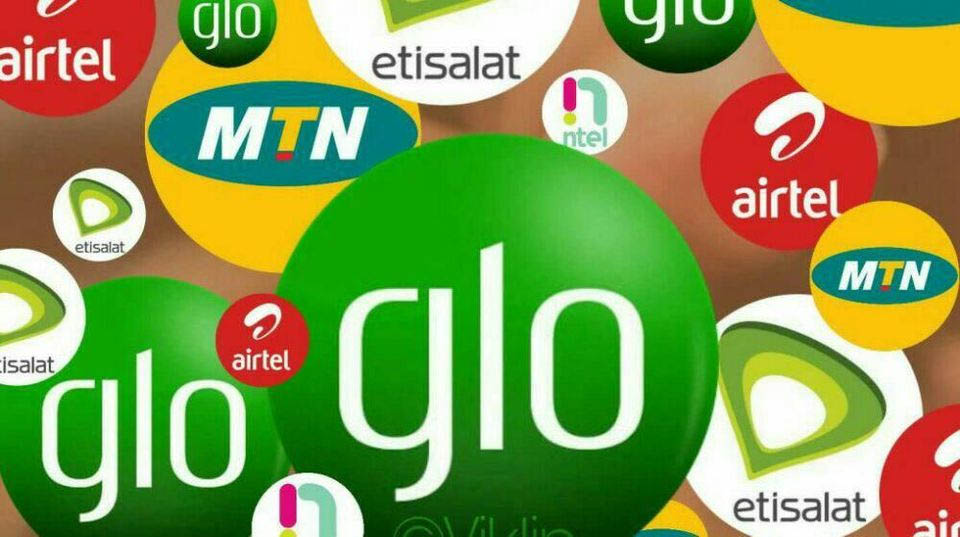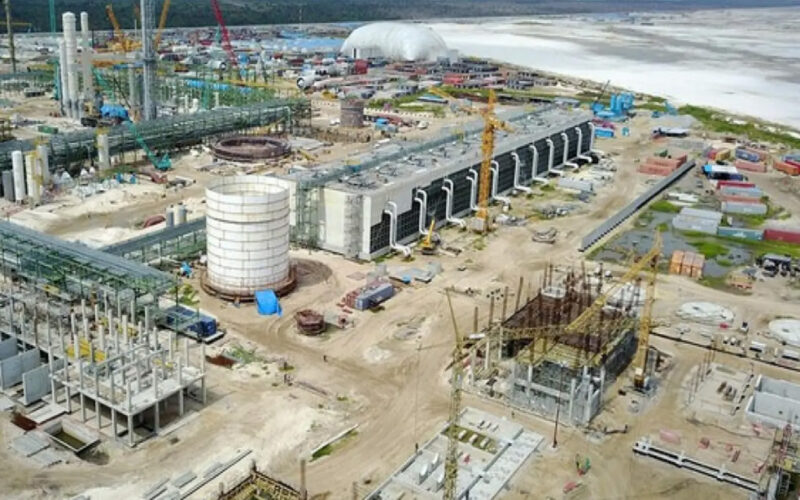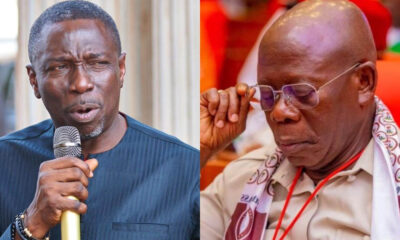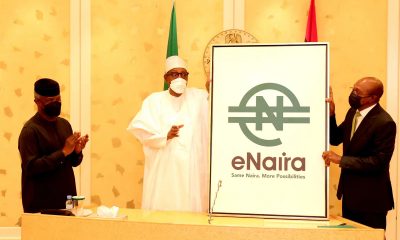Business
Telecom firms threaten to reduce subscribers over high operation costs

Telecom firms threaten to reduce subscribers over high operation costs
In a surprising turn of events, Nigeria’s telecommunications sector is facing potential disruptions as leading telecom operators threaten to implement load shedding measures in response to the Nigerian Communications Commission’s (NCC) reluctance to address their demands for a tariff hike.
Telecom operators, citing the rising cost of operations, including the increased prices of diesel, infrastructure maintenance, and a depreciating naira, have called on the NCC to approve a tariff increase to help mitigate their financial burdens.
For instance, MTN, with a subscriber base of 79.7 million as of December 2023, reported a first loss after tax of N137 billion since its 2019 listing on the Nigerian Stock Exchange in 2023. The telco incurred FX losses of N740 billion ($815.79 million at N907.1/$)
Airtel Africa, which had 50.9 million subscribers in Nigeria as of March 2024, reported a loss after tax of $89 million for its full year ended March 2024, primarily due to FX headwinds in Nigeria and Malawi. It lost $1.26 billion to derivative and FX exposures, with $770 million attributed to the naira’s devaluation.
This has led to dwindled investment in the telecoms sector, the chief executive officer of Airtel Nigeria, Carl Cruz stated, adding that, “The devaluation of the Naira moving from N420/dollar to N760/dollar in a month’s time, to about N1500/dollar today, had indeed affected telecoms industry who rely heavily on importation of infrastructure to grow the sector.’
In the same vein, the CEO, MTN Nigeria, Karl Toriola, said operators are reluctant to invest, simply because of the high operating cost and the devaluation of naira, among other issues that have marred the growth of the sector.
READ ALSO:
- Tinubu tackling out-of-school children menace, says presidential aide
- Nigerian detained in US over $10m COVID-19 fund fraud
- Plateau Gov Mutfwang suspends two commissioners, two aides
According to him, “the telecoms sector in Nigeria is now in an intensive care unit (ICU) gasping for breath, while calling on the government to intervene. The sector is facing a lot of challenges of which if urgent action is not taken, it will dry up. The truth is that investors are not going to come to invest in the sector if the fundamental issues are not addressed. To rescue the sector from collapsing, there is a need to increase prices of telecom services.”
Despite repeated pleas, the regulatory body has remained silent on the issue, causing frustration and uncertainty among industry players.
The situation has escalated, with telecom operators warning that if the tariff hike is not granted, they may be forced to adopt load shedding—a strategy that would involve rationing network availability during certain periods. This could lead to disruptions in mobile and internet services, affecting millions of Nigerians who rely on these services for communication, business, and access to essential information.
“With the high operating cost and the delay on the part of the government to allow operators to increase prices of telecoms services, operators may adopt the method of load shedding in the sector.
“We may decide to give network to some areas, while others may not have network, just to cut down operating cost for survival of the industry,” chairman, Association of Licensed Telecom Operators of Nigeria (ALTON), Engr. Gbenga Adebayo told LEADERSHIP.
Meanwhile, the NCC has yet to release an official statement addressing the operators’ demands or the looming threat of service disruptions. A source in the Commission, told our correspondent, that NCC do not want to comment on the issue.
The reason for NCC’s silence is not far-fetched, the chief executive officer, Jidaw Systems Limited, Jide Awe, told LEADERSHIP, adding that “There are no easy answers. It’s essentially a dilemma that requires a balancing act to resolve. Nigeria’s telecom sector is really facing challenging times. The sector’s players are obviously grappling with increasing operational costs. On the other hand, consumers will be hard hit if NCC throws in the towel.
READ ALSO:
- LGA autonomy: FG names Edun, Cardoso in committee to enforce Supreme Court judgement on
- Edo deputy gov: Again, Shaibu wins at Appeal Court
- Ajaero dares IGP, says he can’t honour police invitation until August 29
“The operators argue with good reason that without increased tariffs, they may find it difficult to maintain service quality, sustain their infrastructure, invest in new technologies, or even remain financially viable.
“On the other hand, Nigerians are already under considerable financial strain due to the rising cost of living. Any increase in telecom tariffs could worsen this situation, making it more difficult for individuals and businesses to afford essential communication services.”
He therefore stated that while the cry of telecom operators is clear, it is equally essential to carefully consider the socio-economic impact on citizens, suggesting that the NCC must balance these two concerns – the needs of the telecom sector for continued growth and sustainability with the economic realities faced by Nigerian consumers.
For the meantime, the Nigerian Communications Satellite (NIGCOMSAT) Limited said it is seeking to partner with operators to ease the burden of dollars in securing infrastructure.
The head, marketing and stakeholders’ engagement, NIGCOMSAT, Olufunke Fagbeja, disclosed this, during an interview with journalists, at the KA-band VSAT Installation training in Lagos.
“We are taking steps to ensure or to foster this partnership. For example, we have been having talks with some operators in terms of strategic partnerships. So, this is something we’re working on and we believe it will bear fruit and we will see the value with regards to services.”
Speaking on easy access to telecom equipment, Fagbeja said, though NIGCOMSAT is not an Original Equipment Manufacturer (OEM) as it does not manufacture equipment, it has entered into partnership with manufacturers of some of the equipment needed in the telecom industry.
“We partner with these manufacturers and we purchase our equipment directly from them. What this means is that we can get the equipment at a better rate, at a discounted rate, to give to our customers like operators. So we can assist operators to get the equipment (at a much reduced price) needed to expand their operation in the country.
“We are also looking at producing some of the equipment locally, by empowering startups through the Accelerator programme. The programme is aimed at propelling advancements in satellite technology and bolster Nigeria’s position in the global tech arena,” she added.
Telecom firms threaten to reduce subscribers over high operation costs
Business
Suspend VAT, other policies impoverishing Nigerians – SMEs tell FG

Suspend VAT, other policies impoverishing Nigerians – SMEs tell FG
The National Association of Small and Medium Scale Enterprises (NASME) and financial experts have called on the Federal Government (FG) to suspend any new policy that may further impoverish Nigerians.
The unanimous call was made by respondents in separate interviews with the News Agency of Nigeria (NAN) in Ibadan on Tuesday.
The interview focused on the need to stabilise the economy as an increase in Value Added Tax (VAT) is being anticipated from 7.5 per cent to 10 per cent.
The Oyo State chairman NASME, Prince John Karunwi, said VAT, being a consumer tax, would make prices of goods and services shoot up.
According to him, the increase will deplete consumers’ purchasing power and reduce the quantity of items they can buy.
Karunwi said that the present situation had left most Nigerians without disposable income.
“The situation now is that after transportation, maybe people have little for feeding.
“If they now discover that for some certain products, the prices will go high, the demand for products that are not essential will, definitely, drop,” said the chairman.
He said the government should be patient and allow the economy to stabilise despite its drive to increase its internally generated revenue.
READ ALSO:
- Salary: FG vows to prosecute private employers paying below N70,000
- American govt approves Elon Musk’s Neuralink brain chip to restore vision
- Man remanded for allegedly defiling stepdaughter in Benue
An economist, Samson Olalere, said the idea to increase VAT at this point would further deepen the hardship of the common man.
According to him, people are already grumbling about the unwarranted fuel price increase and the high cost of living, as the new minimum wage increase is grossly inadequate.
He said the government should look inward and come up with ideas that would benefit the populace and reduce the hunger of common Nigerians.
“I say no to the increase in VAT. It is an abuse of the sensitivity of Nigerians,” said the economist.
Olalere wondered why the common Nigerian would be asked to sacrifice, tighten his belt, and keep faith in the government without enough consideration for him from the same government.
A financial expert, Sola Famakinwa, corroborated the opinions of others that an increase in VAT would amount to an increase in the prices of goods and services.
“There is no way the manufacturing industries would bear the cost of increased VAT; it would be passed down to the consumers.
“If what we hear about the proposed VAT increment is true, I do not think Nigerians can bear to have more burden added to their shoulders now,” Famakinwa said.
He noted that the government needed to reduce the economic hardship by introducing subsidies for necessities that directly affect Nigerians, considering that not all are government workers.
Recall that VAT was increased from 5 per cent to 7.5 per cent on Feb. 1, 2020.
However, the Presidential Committee on Fiscal Policy and Tax Reforms recently recommended an increase to 10 per cent from 2025, and to 15 per cent by 2027 or 2030.
Suspend VAT, other policies impoverishing Nigerians – SMEs tell FG
Business
Nigeria positioned to lead $7.7tn halal market – Shettima

Nigeria positioned to lead $7.7tn halal market – Shettima
Vice President Kashim Shettima has projected that Nigeria is on the path to becoming a major player in the global halal economy, which is expected to reach a market value of $7.7 trillion by 2025.
Speaking during the Halal Economy Stakeholders Engagement Programme at the banquet hall of the Presidential Villa in Abuja on Wednesday, Shettima said Nigeria’s demographic and economic size provide a strong foundation for positioning the country as a key player in the halal market.
Shettima highlighted the importance of reassessing the nation’s strengths and addressing its weaknesses to achieve this economic milestone.
He stated that the engagement with international stakeholders will help develop a comprehensive halal ecosystem and strategies that will allow Nigeria to tap into high-value global markets.
He praised the private sector for its contributions, especially in the financial sector, and called for further collaboration to deliver a robust halal economy.
READ ALSO:
- Major US labour union declines to endorse Harris, Trump
- 20 killed, 450 injured in second wave of blasts in Lebanon
- FG mutes new system against fraud, to enhance identity verification
He also urged stakeholders to support the administration of President Bola Ahmed Tinubu in creating a thriving halal ecosystem.
Shettima further noted the importance of attracting international investment through summits, roadshows, and business matchmaking events, emphasising that regional trade expansion via the African Continental Free Trade Area (AfCFTA) offers Nigeria a platform to become a leading supplier of halal goods and services across Africa.
Aliyu Bunu Sheriff, the Special Assistant to the President on Export Expansion, highlighted the economic potential of the halal sector.
He explained that increasing Nigeria’s halal exports to countries in the Organisation of Islamic Cooperation (OIC) from 2% to 6% over the next four years could boost the country’s GDP by $548 million.
Senator Abubakar Kyari, Minister of Agriculture and Food Security, provided key statistics, noting that Nigeria’s domestic spending on halal products and services was approximately $107 billion in 2022.
Nigeria positioned to lead $7.7tn halal market – Shettima
Business
Fresh trouble over supply volume in Dangote refinery petrol

Fresh trouble over supply volume in Dangote refinery petrol
LAGOS — More controversy has emerged in the execution of a sale-purchase deal on premium motor spirit, otherwise known as petrol, between the Nigerian National Petroleum Company Limited, NNPCL, and Dangote Refinery.
NNPCL last weekend said Dangote could only deliver 16.8 million litres out of the 25 million litres it initially agreed with NNPC.
A source at the NNPCL also told Vanguard, yesterday that the refinery is struggling to deliver the 16.8 million litres it promised.
READ ALSO:
- School teachers begin indefinite strike in Abuja
- Police parade suspected ritualists, armed robbers in Osun
- Students can reapply for loans, we’ve resolved BVN verification glitch – NELFUND
But with the latest delivery figure it disclosed, Dangote must have significantly surpassed its promised delivery as well as the national demand put at over 40 million litres per day.
This also means that Dangote can make further petrol importation unnecessary.
But against the backdrop of this latest development, Vanguard learned that importation by NNPCL may have intensified with several consignments, totalling over 135 million litres, within three weeks from September 27, 2024, with the latest import arriving Friday.
This also implies a sudden excess supply of petrol barely a few days after the country was suffocated by acute shortage of the product, resulting in a sharp rise in the price.
Speaking to Vanguard on the development, the Group Chief Branding and Communications Officer of Dangote Refinery, Anthony Chiejina, stated: “We have already loaded 111 million litres of petrol and the exercise is ongoing.
“We are refining and have no reason not to load. So, loading is ongoing and we would continue to provide the product to the market.”
Fresh trouble over supply volume in Dangote refinery petrol
-

 Business2 days ago
Business2 days agoDangote refinery to transport 75% of fuel locally by sea
-

 metro2 days ago
metro2 days agoFour burnt to death, eight others injured in Ore-Ijebu Ode road crash
-

 Politics2 days ago
Politics2 days agoWhy I’ll work against Obi as running mate – Aisha Yesufu
-

 Business3 days ago
Business3 days agoNNPC hints petrol may rise above N1,000/litre, releases fresh price list
-

 metro2 days ago
metro2 days agoUpdated: Controversial church testimony occurred in a dream, says Lord’s Chosen
-

 metro2 days ago
metro2 days agoLady laces food with laxatives to know those eating it
-

 News2 days ago
News2 days agoIghodalo sues Oshiomhole for N20bn ahead of Edo election
-

 metro2 days ago
metro2 days agoBandits: Another Bello Turji ally falls as troops sustain onslaught













